- Home
- P. G. Wodehouse
The Gold Bat Page 15
The Gold Bat Read online
Page 15
XIII
VICTIM NUMBER THREE
"With reference to our last communication," ran the letter--the writerevidently believed in the commercial style--"it may interest you toknow that the bat you lost by the statue on the night of the 26th ofJanuary has come into our possession. _We observe that Barry is stillplaying for the first fifteen._"
"And will jolly well continue to," muttered Trevor, crumpling the paperviciously into a ball.
He went on writing the names for the Ripton match. The last name on thelist was Barry's.
Then he sat back in his chair, and began to wrestle with this newdevelopment. Barry must play. That was certain. All the bluff in theworld was not going to keep him from playing the best man at his disposalin the Ripton match. He himself did not count. It was the school he hadto think of. This being so, what was likely to happen? Though nothingwas said on the point, he felt certain that if he persisted in ignoringthe League, that bat would find its way somehow--by devious routes,possibly--to the headmaster or some one else in authority. And thenthere would be questions--awkward questions--and things would beginto come out. Then a fresh point struck him, which was, that whatevermight happen would affect, not himself, but O'Hara. This made it rathermore of a problem how to act. Personally, he was one of those doggedcharacters who can put up with almost anything themselves. If this hadbeen his affair, he would have gone on his way without hesitating.Evidently the writer of the letter was under the impression that hehad been the hero (or villain) of the statue escapade.
If everything came out it did not require any great effort of prophecyto predict what the result would be. O'Hara would go. Promptly. Hewould receive his marching orders within ten minutes of the discoveryof what he had done. He would be expelled twice over, so to speak, oncefor breaking out at night--one of the most heinous offences in theschool code--and once for tarring the statue. Anything that gave theschool a bad name in the town was a crime in the eyes of the powers,and this was such a particularly flagrant case. Yes, there was no doubtof that. O'Hara would take the first train home without waiting to packup. Trevor knew his people well, and he could imagine their feelingswhen the prodigal strolled into their midst--an old Wrykinian _malgrelui_. As the philosopher said of falling off a ladder, it is not thefalling that matters: it is the sudden stopping at the other end. It isnot the being expelled that is so peculiarly objectionable: it is thesudden homecoming. With this gloomy vision before him, Trevor almostwavered. But the thought that the selection of the team had nothingwhatever to do with his personal feelings strengthened him. He wassimply a machine, devised to select the fifteen best men in the schoolto meet Ripton. In his official capacity of football captain he was notsupposed to have any feelings. However, he yielded in so far that hewent to Clowes to ask his opinion.
Clowes, having heard everything and seen the letter, unhesitatinglyvoted for the right course. If fifty mad Irishmen were to be expelled,Barry must play against Ripton. He was the best man, and in he must go.
"That's what I thought," said Trevor. "It's bad for O'Hara, though."
Clowes remarked somewhat tritely that business was business.
"Besides," he went on, "you're assuming that the thing this letterhints at will really come off. I don't think it will. A man would haveto be such an awful blackguard to go as low as that. The least grain ofdecency in him would stop him. I can imagine a man threatening to do itas a piece of bluff--by the way, the letter doesn't actually sayanything of the sort, though I suppose it hints at it--but I can'timagine anybody out of a melodrama doing it."
"You can never tell," said Trevor. He felt that this was but an outsidechance. The forbearance of one's antagonist is but a poor thing totrust to at the best of times.
"Are you going to tell O'Hara?" asked Clowes.
"I don't see the good. Would you?"
"No. He can't do anything, and it would only give him a bad time. Thereare pleasanter things, I should think, than going on from day to day notknowing whether you're going to be sacked or not within the next twelvehours. Don't tell him."
"I won't. And Barry plays against Ripton."
"Certainly. He's the best man."
"I'm going over to Seymour's now," said Trevor, after a pause, "to seeMilton. We've drawn Seymour's in the next round of the house-matches. Isuppose you knew. I want to get it over before the Ripton match, forseveral reasons. About half the fifteen are playing on one side or theother, and it'll give them a good chance of getting fit. Running andpassing is all right, but a good, hard game's the thing for putting youinto form. And then I was thinking that, as the side that loses,whichever it is--"
"Seymour's, of course."
"Hope so. Well, they're bound to be a bit sick at losing, so they'llplay up all the harder on Saturday to console themselves for losing thecup."
"My word, what strategy!" said Clowes. "You think of everything. Whendo you think of playing it, then?"
"Wednesday struck me as a good day. Don't you think so?"
"It would do splendidly. It'll be a good match. For all practicalpurposes, of course, it's the final. If we beat Seymour's, I don'tthink the others will trouble us much."
There was just time to see Milton before lock-up. Trevor ran across toSeymour's, and went up to his study.
"Come in," said Milton, in answer to his knock.
Trevor went in, and stood surprised at the difference in the look ofthe place since the last time he had visited it. The walls, oncecovered with photographs, were bare. Milton, seated before the fire,was ruefully contemplating what looked like a heap of waste cardboard.
Trevor recognised the symptoms. He had had experience.
"You don't mean to say they've been at you, too!" he cried.
Milton's normally cheerful face was thunderous and gloomy.
"Yes. I was thinking what I'd like to do to the man who ragged it."
"It's the League again, I suppose?"
Milton looked surprised.
"_Again?_" he said, "where did _you_ hear of the League?This is the first time I've heard of its existence, whatever it is.What is the confounded thing, and why on earth have they played thefool here? What's the meaning of this bally rot?"
He exhibited one of the variety of cards of which Trevor had alreadyseen two specimens. Trevor explained briefly the style and nature ofthe League, and mentioned that his study also had been wrecked.
"Your study? Why, what have they got against you?"
"I don't know," said Trevor. Nothing was to be gained by speaking ofthe letters he had received.
"Did they cut up your photographs?"
"Every one."
"I tell you what it is, Trevor, old chap," said Milton, with greatsolemnity, "there's a lunatic in the school. That's what I make of it.A lunatic whose form of madness is wrecking studies."
"But the same chap couldn't have done yours and mine. It must have beena Donaldson's fellow who did mine, and one of your chaps who did yoursand Mill's."
"Mill's? By Jove, of course. I never thought of that. That was theLeague, too, I suppose?"
"Yes. One of those cards was tied to a chair, but Clowes took it awaybefore anybody saw it."
Milton returned to the details of the disaster.
"Was there any ink spilt in your room?"
"Pints," said Trevor, shortly. The subject was painful.
"So there was here," said Milton, mournfully. "Gallons."
There was silence for a while, each pondering over his wrongs.
"Gallons," said Milton again. "I was ass enough to keep a large potfull of it here, and they used it all, every drop. You never saw such asight."
Trevor said he had seen one similar spectacle.
"And my photographs! You remember those photographs I showed you? Allruined. Slit across with a knife. Some torn in half. I wish I knew whodid that."
Trevor said he wished so, too.
"There was one of Mrs Patrick Campbell," Milton continued inheartrending tones, "which was torn into sixteen piece
s. I countedthem. There they are on the mantelpiece. And there was one of LittleTich" (here he almost broke down), "which was so covered with ink thatfor half an hour I couldn't recognise it. Fact."
Trevor nodded sympathetically.
"Yes," said Milton. "Soaked."
There was another silence. Trevor felt it would be almost an outrage todiscuss so prosaic a topic as the date of a house-match with one sobroken up. Yet time was flying, and lock-up was drawing near.
"Are you willing to play--" he began.
"I feel as if I could never play again," interrupted Milton. "You'dhardly believe the amount of blotting-paper I've used today. It musthave been a lunatic, Dick, old man."
When Milton called Trevor "Dick", it was a sign that he was moved. Whenhe called him "Dick, old man", it gave evidence of an internal upheavalwithout parallel.
"Why, who else but a lunatic would get up in the night to wreck anotherchap's study? All this was done between eleven last night and seventhis morning. I turned in at eleven, and when I came down here again atseven the place was a wreck. It must have been a lunatic."
"How do you account for the printed card from the League?"
Milton murmured something about madmen's cunning and divertingsuspicion, and relapsed into silence. Trevor seized the opportunity tomake the proposal he had come to make, that Donaldson's _v._Seymour's should be played on the following Wednesday.
Milton agreed listlessly.
"Just where you're standing," he said, "I found a photograph of SirHenry Irving so slashed about that I thought at first it was HuntleyWright in _San Toy_."
"Start at two-thirty sharp," said Trevor.
"I had seventeen of Edna May," continued the stricken Seymourite,monotonously. "In various attitudes. All destroyed."
"On the first fifteen ground, of course," said Trevor. "I'll getAldridge to referee. That'll suit you, I suppose?"
"All right. Anything you like. Just by the fireplace I found theremains of Arthur Roberts in _H.M.S. Irresponsible_. And part ofSeymour Hicks. Under the table--"
Trevor departed.

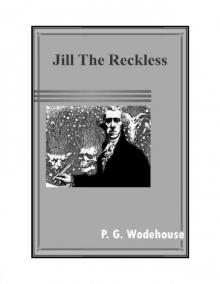 Jill the Reckless
Jill the Reckless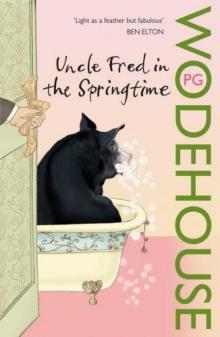 Uncle Fred in the Springtime
Uncle Fred in the Springtime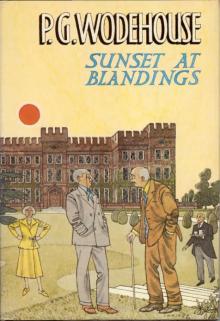 Sunset at Blandings
Sunset at Blandings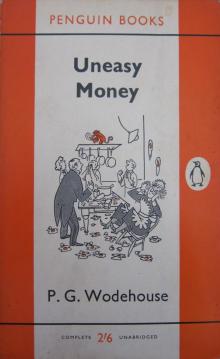 Uneasy Money
Uneasy Money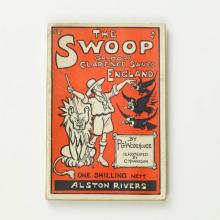 The Swoop! or, How Clarence Saved England: A Tale of the Great Invasion
The Swoop! or, How Clarence Saved England: A Tale of the Great Invasion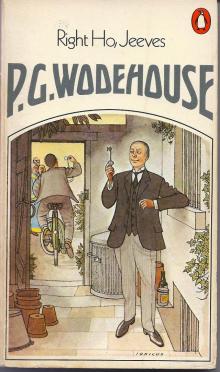 Right Ho, Jeeves
Right Ho, Jeeves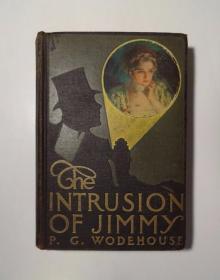 The Intrusion of Jimmy
The Intrusion of Jimmy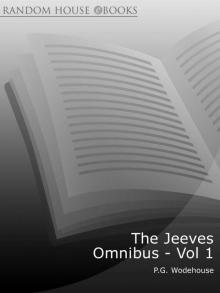 The Jeeves Omnibus - Vol 1:
The Jeeves Omnibus - Vol 1: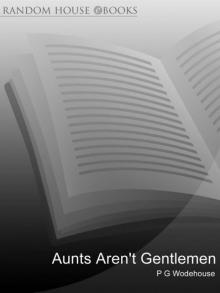 Aunts Aren't Gentlemen:
Aunts Aren't Gentlemen: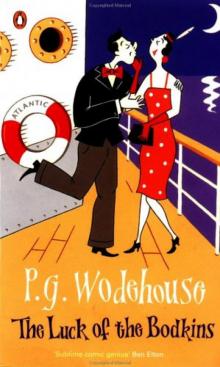 The Luck of the Bodkins
The Luck of the Bodkins The Little Nugget
The Little Nugget Money for Nothing
Money for Nothing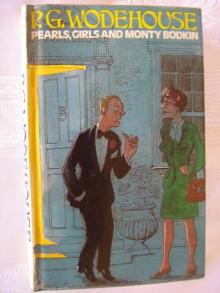 Pearls, Girls and Monty Bodkin
Pearls, Girls and Monty Bodkin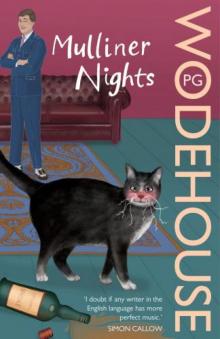 Mulliner Nights
Mulliner Nights Blandings Castle and Elsewhere
Blandings Castle and Elsewhere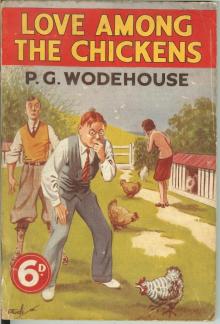 Love Among the Chickens
Love Among the Chickens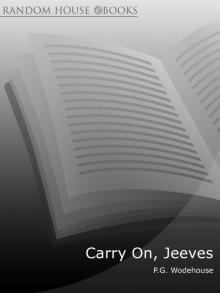 Carry On, Jeeves!
Carry On, Jeeves!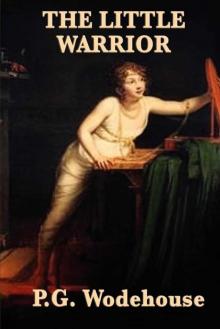 The Little Warrior
The Little Warrior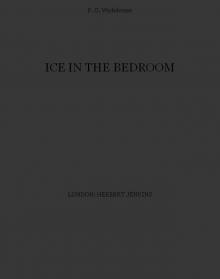 Ice in the Bedroom
Ice in the Bedroom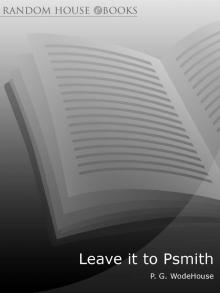 Leave It to Psmith
Leave It to Psmith Thank You, Jeeves:
Thank You, Jeeves: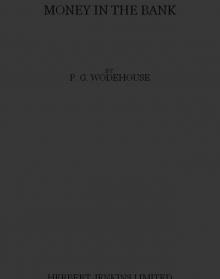 Money in the Bank
Money in the Bank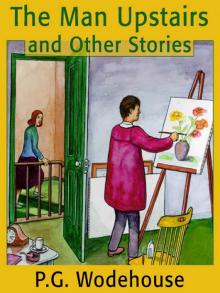 The Man Upstairs and Other Stories
The Man Upstairs and Other Stories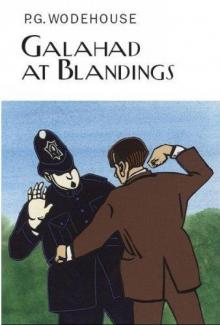 Galahad at Blandings
Galahad at Blandings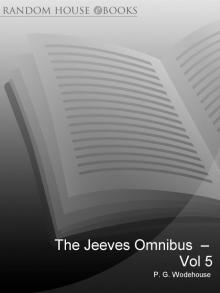 The Jeeves Omnibus Vol. 5
The Jeeves Omnibus Vol. 5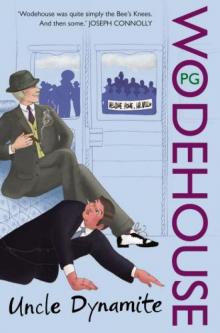 Uncle Dynamite
Uncle Dynamite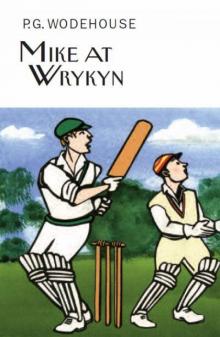 Mike at Wrykyn
Mike at Wrykyn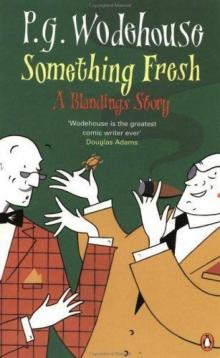 Something Fresh
Something Fresh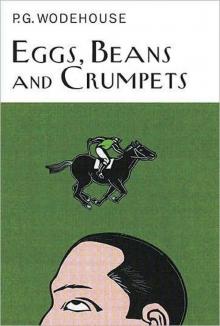 Eggs, Beans and Crumpets
Eggs, Beans and Crumpets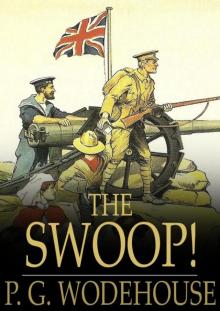 The Swoop: How Clarence Saved England (Forgotten Books)
The Swoop: How Clarence Saved England (Forgotten Books)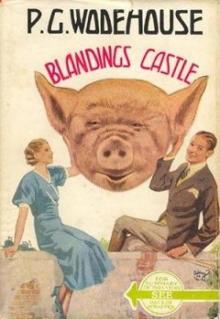 Blanding Castle Omnibus
Blanding Castle Omnibus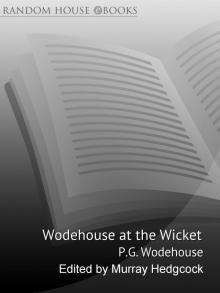 Wodehouse at the Wicket: A Cricketing Anthology
Wodehouse at the Wicket: A Cricketing Anthology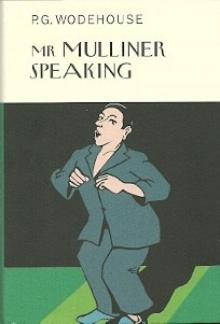 Mr. Mulliner Speaking
Mr. Mulliner Speaking Hot Water
Hot Water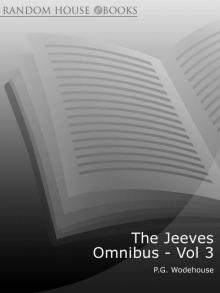 The Jeeves Omnibus - Vol 3: The Mating Season / Ring for Jeeves / Very Good, Jeeves
The Jeeves Omnibus - Vol 3: The Mating Season / Ring for Jeeves / Very Good, Jeeves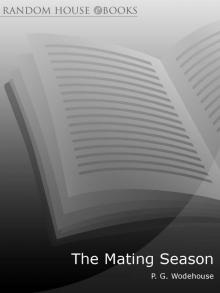 The Mating Season
The Mating Season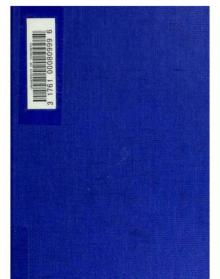 Meet Mr. Mulliner
Meet Mr. Mulliner The Man with Two Left Feet, and Other Stories
The Man with Two Left Feet, and Other Stories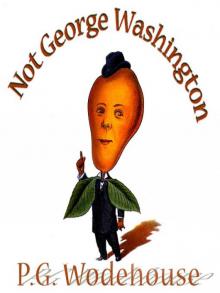 Not George Washington — an Autobiographical Novel
Not George Washington — an Autobiographical Novel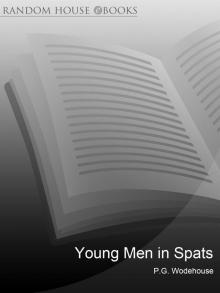 Young Men in Spats
Young Men in Spats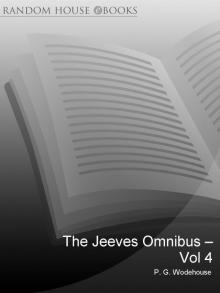 The Jeeves Omnibus Vol. 4
The Jeeves Omnibus Vol. 4 A Pelican at Blandings:
A Pelican at Blandings: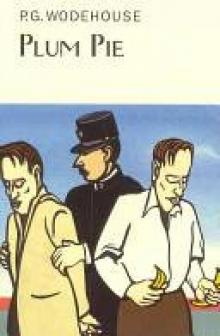 Plum Pie
Plum Pie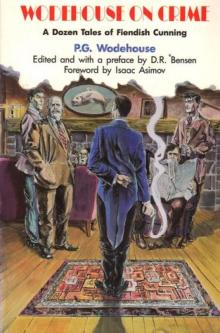 Wodehouse On Crime
Wodehouse On Crime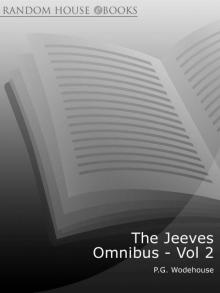 The Jeeves Omnibus Vol. 2: Right Ho, Jeeves / Joy in the Morning / Carry On, Jeeves
The Jeeves Omnibus Vol. 2: Right Ho, Jeeves / Joy in the Morning / Carry On, Jeeves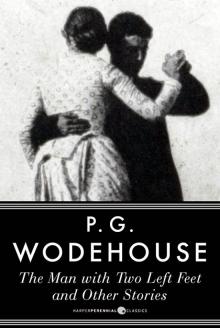 The Man With Two Left Feet
The Man With Two Left Feet Full Moon:
Full Moon: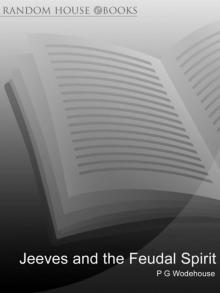 Jeeves and the Feudal Spirit:
Jeeves and the Feudal Spirit: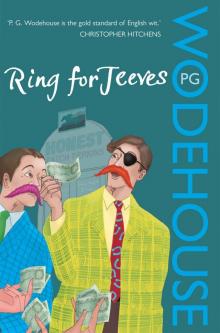 Ring For Jeeves
Ring For Jeeves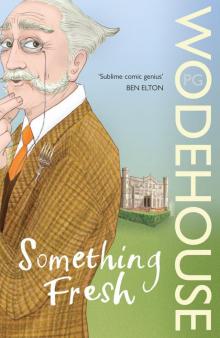 Something New
Something New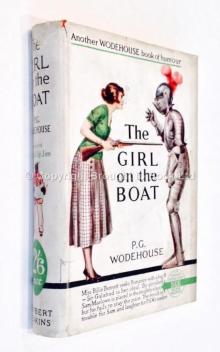 The Girl on the Boat
The Girl on the Boat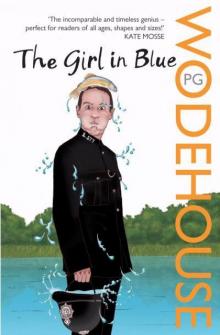 The Girl in Blue
The Girl in Blue Pigs Have Wings:
Pigs Have Wings: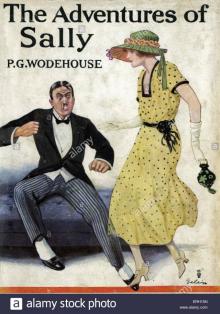 The Adventures of Sally
The Adventures of Sally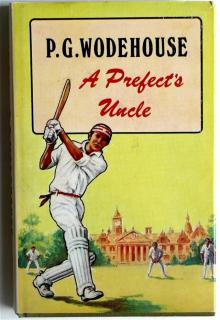 A Prefect's Uncle
A Prefect's Uncle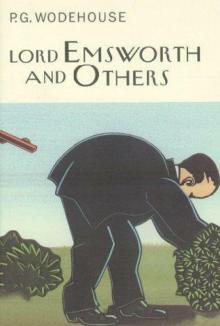 Lord Emsworth and Others
Lord Emsworth and Others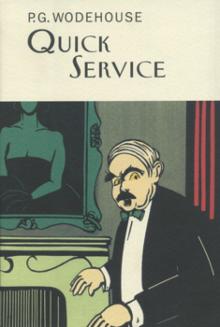 Quick Service
Quick Service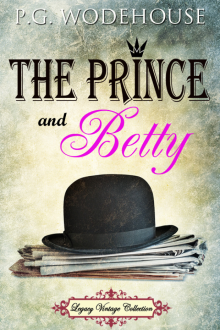 The Prince and Betty
The Prince and Betty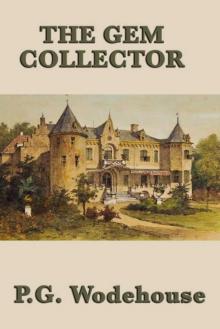 The Gem Collector
The Gem Collector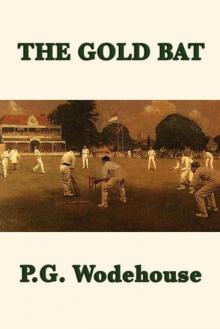 The Gold Bat
The Gold Bat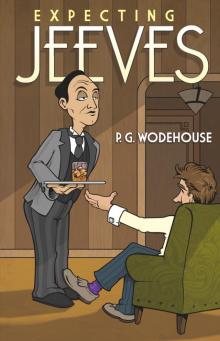 Expecting Jeeves
Expecting Jeeves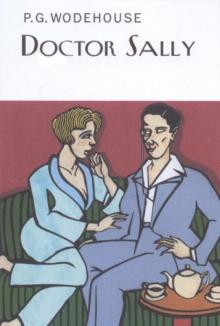 Doctor Sally
Doctor Sally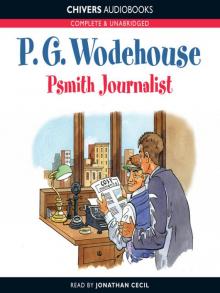 Psmith, Journalist
Psmith, Journalist The Golf Omnibus
The Golf Omnibus Heavy Weather
Heavy Weather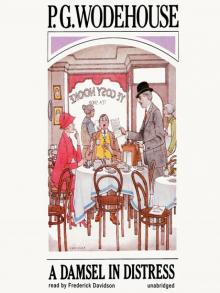 A Damsel in Distress
A Damsel in Distress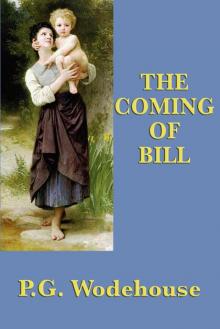 The Coming of Bill
The Coming of Bill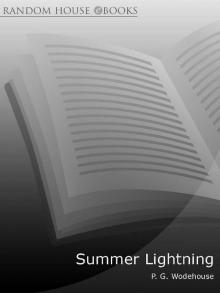 Summer Lightning
Summer Lightning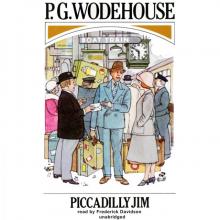 Piccadilly Jim
Piccadilly Jim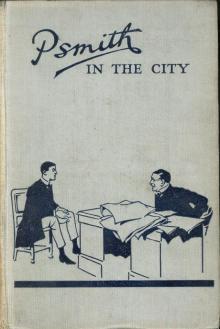 Psmith in the City
Psmith in the City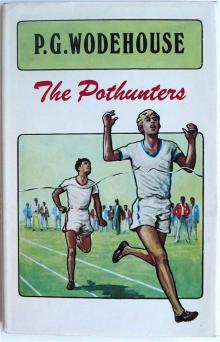 The Pothunters
The Pothunters Service With a Smile
Service With a Smile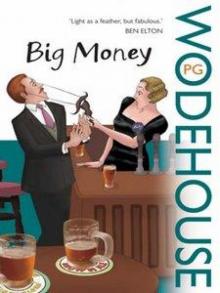 Big Money
Big Money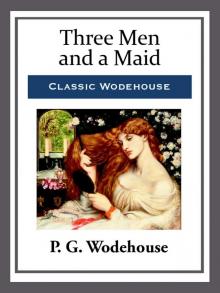 Three Men and a Maid
Three Men and a Maid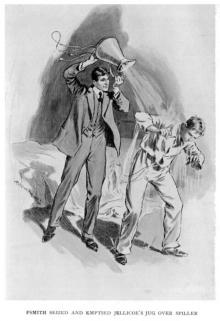 Mike and Psmith
Mike and Psmith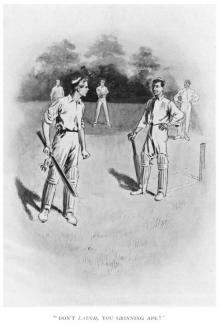 Mike
Mike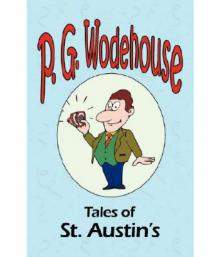 Tales of St. Austin's
Tales of St. Austin's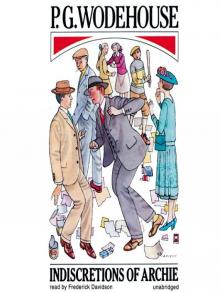 Indiscretions of Archie
Indiscretions of Archie Pigs Have Wings
Pigs Have Wings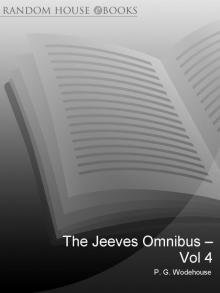 The Jeeves Omnibus - Vol 4: (Jeeves & Wooster): No.4
The Jeeves Omnibus - Vol 4: (Jeeves & Wooster): No.4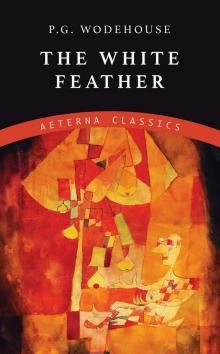 The White Feather
The White Feather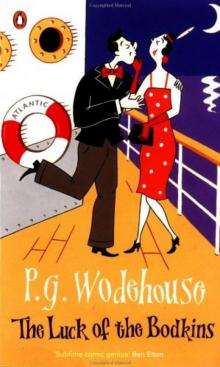 Luck of the Bodkins
Luck of the Bodkins THE SPRING SUIT
THE SPRING SUIT Full Moon
Full Moon Very Good, Jeeves
Very Good, Jeeves Thank You, Jeeves
Thank You, Jeeves Reginald's Record Knock.
Reginald's Record Knock.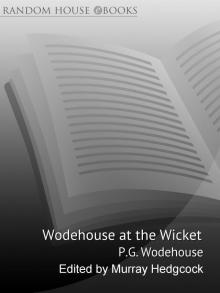 Wodehouse At the Wicket
Wodehouse At the Wicket LADIES AND GENTLEMEN V. PLAYERS
LADIES AND GENTLEMEN V. PLAYERS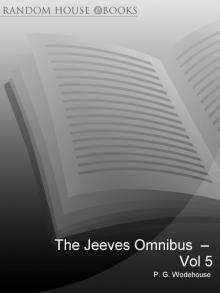 The Jeeves Omnibus - Vol 5: (Jeeves & Wooster)
The Jeeves Omnibus - Vol 5: (Jeeves & Wooster)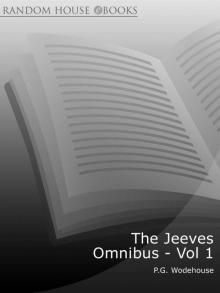 The Jeeves Omnibus - Vol 1: (Jeeves & Wooster): No.1
The Jeeves Omnibus - Vol 1: (Jeeves & Wooster): No.1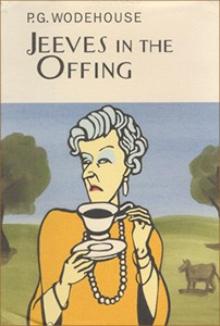 Jeeves in the offing jaw-12
Jeeves in the offing jaw-12